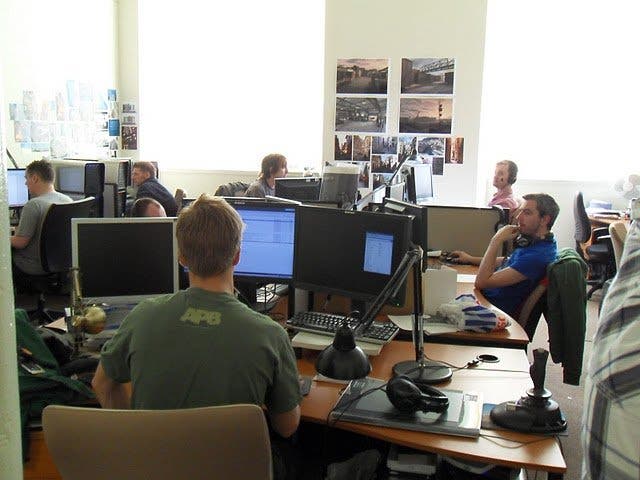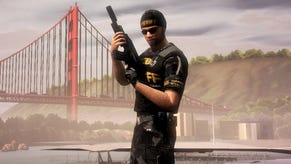The Fall of Realtime Worlds
An insider speaks out.
It was at this stage the first rumblings of discontent began. The beta testers pointed to a number of issues. Poor car handling, unresponsive weapons, a lack of headshots - all were identified and lamented alongside persistent lag. But the mood at Realtime Worlds remained optimistic and Bateman assured the community that the problems would be addressed. It was a beta, after all; there was time to iterate and improve.
However many of the problems identified in the early betas survived until APB's eventual release, and despite the continual release of patches. As a QA tester Bateman had brought the issues to the attention of his superiors. As community officer he had relayed them directly from the beta testers. So wasn't he frustrated at being ignored?
"Not at all. At the end of the day, the feedback was there, it was recognised," says Bateman. "But whether it was due to management, time, money, whatever it was, they just didn't get implemented.
"People forget how ambitious and difficult an MMO is. You have to remember that Realtime Worlds went from being a medium-sized company that made Crackdown to trying to make an MMO, which entails becoming an online publisher, having customer support, supporting several different languages - people forget the scale of it.
"So where people have said we should have been fixing this problem about the game, maybe there was more time being spent on things like the online shop, or improving our customer support. There's so much involved."

Neglecting some of the game's core problems resulted in a mauling at the hands of reviewers. While the technology behind the game was roundly praised, the gameplay itself fell flat. Eurogamer's review identified APB as "a game about shooting and driving" in which the shooting was "weak" and the driving "a reasonable facsimile of attempting to sail a bathtub down a canal". It scored 6 out of 10.
The review was representative of the general consensus. APB received a Metacritic rating of 58 - damaging for a modest console title, but deadly for an online game in need of constant, costly support. Critically, APB was a flop.
At the company-wide meeting the following Friday, Realtime Worlds' management did their best to remain upbeat. "I don't want to say they spun it but... Obviously it's about keeping your team enthusiastic and focusing on the future," says Bateman.
"We had hit a major hurdle. We'd launched a title, an MMO, that was a big deal. It wasn't easy. So we concentrated on the positives."
But the writing was on the wall. Each of RTW's many offices boasted monitors streaming live player figures direct from the servers. At any time, the company's employees could glance up and see APB's failure written in cold, dispassionate numbers on a graph. It was a constant reminder that simply not enough people were buying and playing the game.
Still, within the bubble of Realtime Worlds, there was a belief that the studio could update and patch its way out of the problem. Life would go on.
But RTW was in trouble. The investment cash had gone and the company had begun running up debts.
The first public indication of this came when the company announced it would be laying off staff. The revelation was covered up by assertions that redundancies were inevitable as the game had launched and some staff were no longer needed. But the truth is that the lay-offs were far more widespread than expected.
Project MyWorld, Realtime World's innovative social media game, took the brunt of it. Announced early in a bid to pull in some much needed cash, the title failed to find a publisher. As a result the team's 60-strong staff were let go. Bateman says they never saw it coming; the studio was in shock.
It was the beginning of the end. Just days later, Realtime Worlds went into administration.
As they had been so many times before, the remaining staff were asked to gather in the plush cafeteria. But this time the meeting would be chaired by the administrators, Begbies Traynor. Though reports emerged at the time that "the staff were sacked over the PA system" the truth is a little more prosaic. A microphone was used simply so those at the back of the packed room could hear.
In total, 157 staff were to be made redundant. "They essentially said, 'Here are the 50 people that we want to keep on. Please go to room X,'" recalls Bateman. "It was tough."
One by one the names of the survivors were announced. Those that didn't make the cut were to leave. This would be their last day. But despite the horrific nature of what was unfolding, there was still good will.





















